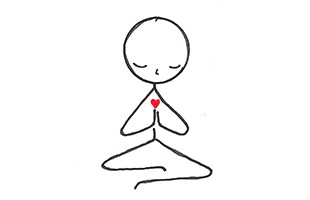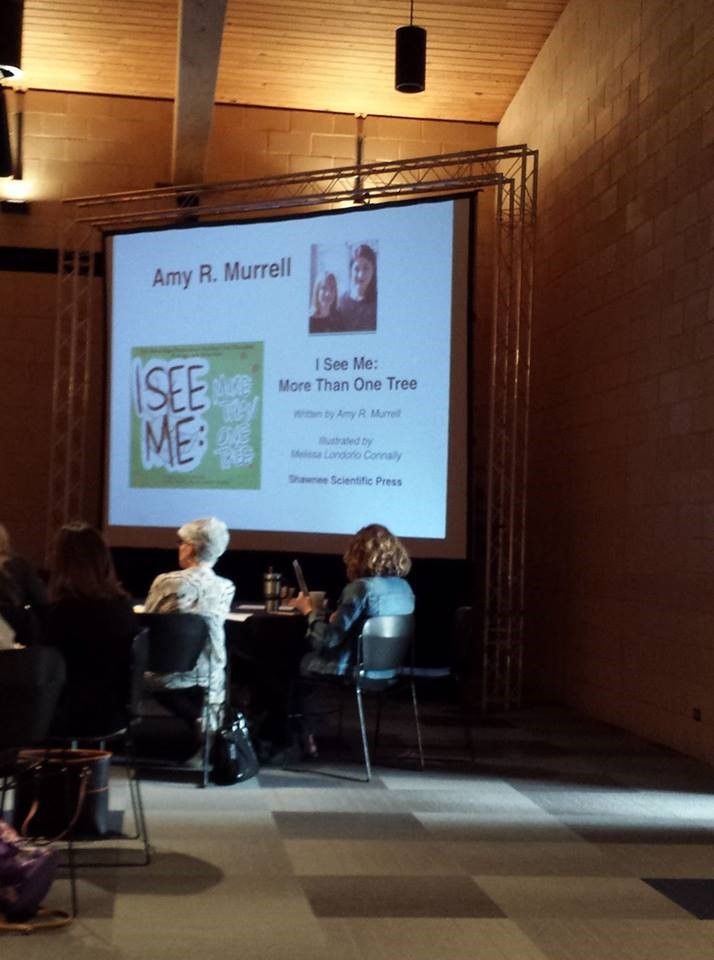I traded 12 children for a more vital life: Lessons on valuing flexibly
By: Amy R. Murrell, Ph.D.

Some preschool age children have an imaginary friend, but – when I was three – I had a husband and twelve children. My beloved spouse was named Brown Brown; and, to this day, my non-imaginary husband of over 20 years teases me if I wear a lot of “my first husband’s name”. I share this anecdote, not because it is funny, but rather to illustrate how important parenting has always been in my life. At age three, I was already a caretaker, a nurturer. It already mattered to me that I guided others forward – that I set consistent rules and consequences for following, and not following, them.
I know this last part is true, because my own parents tell stories about how I made checklists for my pretend children, and awarded them “good jobs” and stars for appropriate follow-through, and put them in time-out when they exhibited poor choices. You can tell a lot about how I was raised from reading this, and I am forever grateful that – in the 1970s – my parents were using behavior charts, labeled praise, and time-outs. My mother was also a big proponent of mindfulness and related emotion regulation strategies.
These techniques came in handy several years later. As an adult, I had a lot of acceptance to do around my value of parenting. I got married at a young age, fully expecting to have multiple biological children. Sparing you all the details, it became quickly apparent that, because of my health, was not going to happen. I tried to tell myself that it did not matter, but society says otherwise. Even more importantly, my whole life I had ONE idea of what being a parent meant, and my own mind was telling me that it was not okay – that I was broken.
I needed to grieve…fully. I needed to do so, not to convince myself that it was okay, but to really experience, in a nonjudgmental way, that I was whole. I had to mourn the loss of the idea, the ideal, of a healthy woman who could give birth to biological children. And, so, I turned to consistent mindfulness practices, with lots of self-compassion built in. One of the exercises I have grown to love is simple, yet it can be very powerful. You might try it and see if you like it too.
Love, Unconditionally: I am Whole
Sit with your eyes closed, and your hands crossed over each other, resting over your heart. Stay this way for approximately one minute (it doesn’t have to be exact and can be longer). Notice your breath first.  Its temperature. Its rhythm. And then, think of one thing you would do if you loved yourself unconditionally.
Its temperature. Its rhythm. And then, think of one thing you would do if you loved yourself unconditionally.
Parenting with Self-Compassion
A nice variant of this exercise is something else you could try – sit in the same position and focus specifically on a time when you really felt like a failure as a parent. Remember everything that you can about that experience – consider where you were, what you were wearing, what you said, and did, how you felt, and what your child said and did. Really watch this time play out as if you were watching a scene in a movie of your own life. Look at your body, your child’s – how you are in relation to one another. Really watch your face. And your child’s. See if you can feel what you were feeling then. And, remember now, your hands on your heart – and the unconditional love.  Forgive yourself for that interaction. For what you see as a failure. If you cannot, then imagine that the person you are watching is a close friend – how much compassion do you have for that parent? See if you might allow yourself some of that forgiveness and kindness.
Forgive yourself for that interaction. For what you see as a failure. If you cannot, then imagine that the person you are watching is a close friend – how much compassion do you have for that parent? See if you might allow yourself some of that forgiveness and kindness.
Want to continue learning more?
Exercises similar to these can be found in The Joy of Parenting, published by New Harbinger, and co-authored by my friend, Lisa Coyne, and me. Writing for parents and doing research about parenting are some of the ways I have learned to flexibly express my parenting values. After I mourned the idea of what parenting looked like for me, I had emotional space to get in touch with what mattered about being a parent. I think this is important for ALL parents. In Koa Whittingham’s book, Becoming Mum, she says we all have ideas about what parenting will be like. I would take it further and say I think we all have ideas about good parenting – ideal, perfect parenting – and BAD parenting!
We all have guiding principles or values related to parenting (even if we aren’t parents). Dr. Whittingham says that we almost always get shocked that things aren’t what we expect. In both her book and The Joy of Parenting, there are really nice exercises about discovering or re-discovering your parenting values and finding ways to quiet your mind and stick to your values, even in the face of internal and external barriers. For me, it really went all the way back to the preschool years!
It is important to me to take care of young people, to help them find their voices, to nurture their growth. I realized that I could do that regardless of what my mind told me about my health, or whether or not my children came from my body (!), and I realized that promoting intellectual, emotional, and spiritual growth can come in many forms.
So, I started writing picture books about acceptance and mindfulness for children. I am using them with my child clients as well as marketing them as general stories for children and parents to read. I am excited to say that I have a contract for six books, the first of which is already on sale, by Shawnee Scientific Press. It is called I See Me: More Than One Tree. The book’s main character learns that she is more than her thoughts, feelings, roles, and external circumstances – all in a child-friendly rhyme. It is illustrated by one of my former graduate students, who I frequently refer to as my academic babies.  In addition to them, I do have three adult children who I raised most of their lives (I just am not their bio mom), and I get to “parront” an African Grey too 😉 My life is pretty darn full; I can’t imagine what being a mom of 12 MORE would be like – thank goodness I didn’t marry Brown Brown!
In addition to them, I do have three adult children who I raised most of their lives (I just am not their bio mom), and I get to “parront” an African Grey too 😉 My life is pretty darn full; I can’t imagine what being a mom of 12 MORE would be like – thank goodness I didn’t marry Brown Brown!





